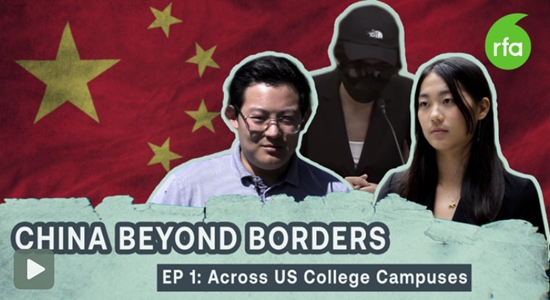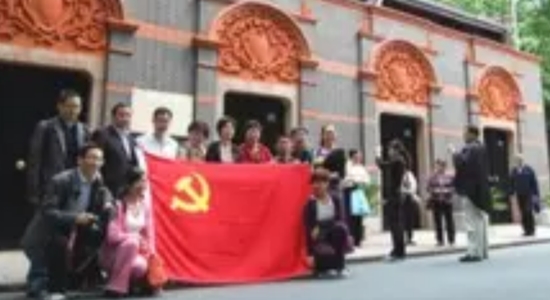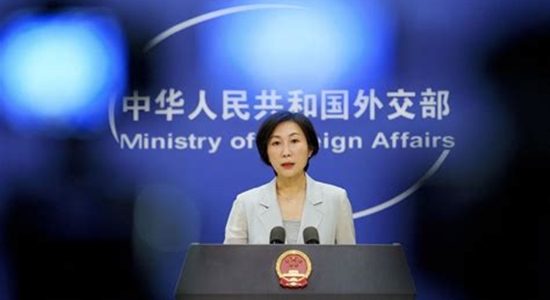
It’s not about the latest Chinese-made things being shipped to us. The exports being examined are “influence and intimidation” in the forms of transnational repression, monitoring and propaganda via app, and cyber attacks (Radio Free Asia, December 28, 2024).
The video series includes three episodes.
● “Across US College Campuses.” This installment discusses “a Harvard University protester being forcibly removed by a Chinese Communist Party-linked student, a violent attack at a Columbia University vigil, and the harassment of Georgetown students for advocating democratic values.”
Jinrui Zhang, a Chinese student at Georgetown who testified before the House Select Committee on the CCP in December 2023, described two kinds of transnational repression, formal and informal. “Formal repression is carried out under the orders of the Chinese state by government workers, while informal repression is carried out organically by CCP supporters who are emboldened by the CCP.”
In 2022, Zhang participated in a White Paper Protest in Washington DC against China’s hyper-repressive COVID-containment policies.
Zhang (starting at 5:35): “Harassment from CCP supporters…began 40 minutes after I made my first public political statement. On Georgetown’s main campus, a student who supported the CCP saw me handing out flyers about the demonstrations and rebuked me, attempting to report me to the Chinese police via a video function on his phone.
“And then the formal repression came earlier this year [2023]…. On the evening of June 29, I suddenly received a WeChat message from my sister. ‘Contact me immediately, something happened.’ The police station had called my sister. And the officer asked, ‘Is your child in Washington? Did your child participate in or organize Torch on the Potomac?… Provide me with all the addresses of your family members.”
Torch on the Potomac, more formally called the George Washington University Independent Chinese Student Union, was established in part to call attention to Chinese Communist Party harassment of Chinese students and their families, in part to provide students and others “with a platform, social support and community independent from the Chinese Communist Party and its puppets.”
According to the organization’s statement, Zhang’s experience is hardly unique.
“We, as Chinese students and scholars living and working by the Potomac River, Lincoln Memorial, and Capitol Hill, are thousands of miles away from the People’s Republic of China (PRC), but remain under a specter of fear. We find ourselves facing a systematic campaign of repression, and all of us—and our families back home—face the constant reality of intimidation, surveillance, harassment, blackmail, and other infringements upon our rights. We lack meaningful access to academic freedom and to our civil rights, despite studying at a university that claims to promote and defend these.”
● “TikTok—National Security Threat?” A look at the ByteDance company’s “data collection practices, its potential to manipulate users through algorithms, and the broader implications for American privacy and democracy. As the deadline for ByteDance’s divestment of TikTok is approaching, the episode raises critical questions about balancing national security with the principles of an open society.”
● “China-linked hackers spark global concern.” The focus here is on theft of intellectual property and a recent cyberattack by a group of hackers called UNK_SweetSpecter. The attack was brought to light by Proofpoint, a California-based security firm. “Despite improved international intellectual property laws, enforcement remains inconsistent.”
Three kinds of threats originating from China and the Chinese Communist Party, three episodes. There could’ve been a hundred.





